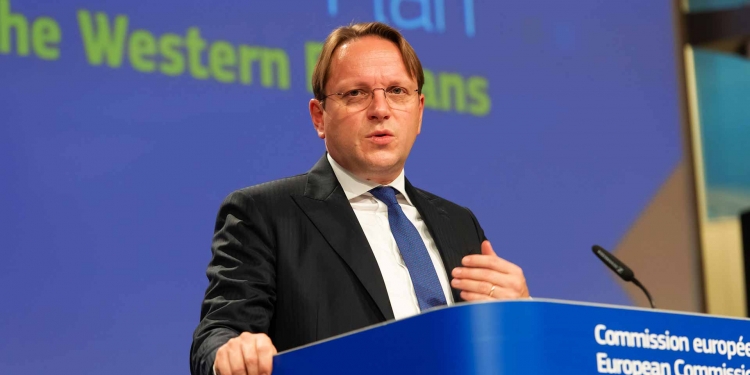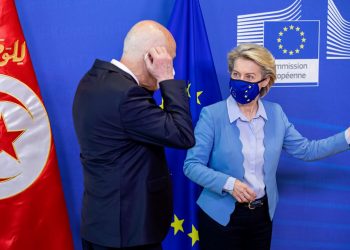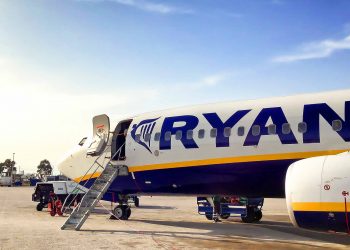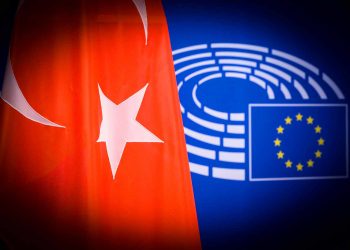The EU is the biggest donor, trading partner and investor of the Western Balkans, in line with the European perspective of the whole region. Since the 1990s, the EU has contributed over €11 billion in grants and loans for the development of transport and energy infrastructure in the region, resulting in investments of almost €22 billion.
In the framework of the Connectivity Agenda in 2015, the EU pledged a further €1 billion by 2020, which is on target to trigger €4 billion in investments and create more than 45.000 jobs. Over 69.4% of the region’s total trade in 2019 was with the EU, making it its first trading partner, whilst EU companies are the first investors, accounting for approximately 65.5% of total foreign direct investment stock in the region in 2018.
Economic and Investment Plan for Western Balkans
The main aim of the Economic and Investment Plan is to spur the long-term economic recovery of the region and foster regional economic integration. We want to support a green and digital transition in the Western Balkans, the implementation of reforms required to move forward on the EU path, and bring the region closer to the EU Single Market. All of this should lead to sustained economic growth and job creation.
This Plan is all the more necessary as COVID-19 is having massive disrupting effects on the economies of the Western Balkans, which were already lagging behind in terms of economic convergence with the EU and face challenges from weak competitiveness, high unemployment and structural weaknesses.
50% of EU private sector funding should is only for innovation and green growth
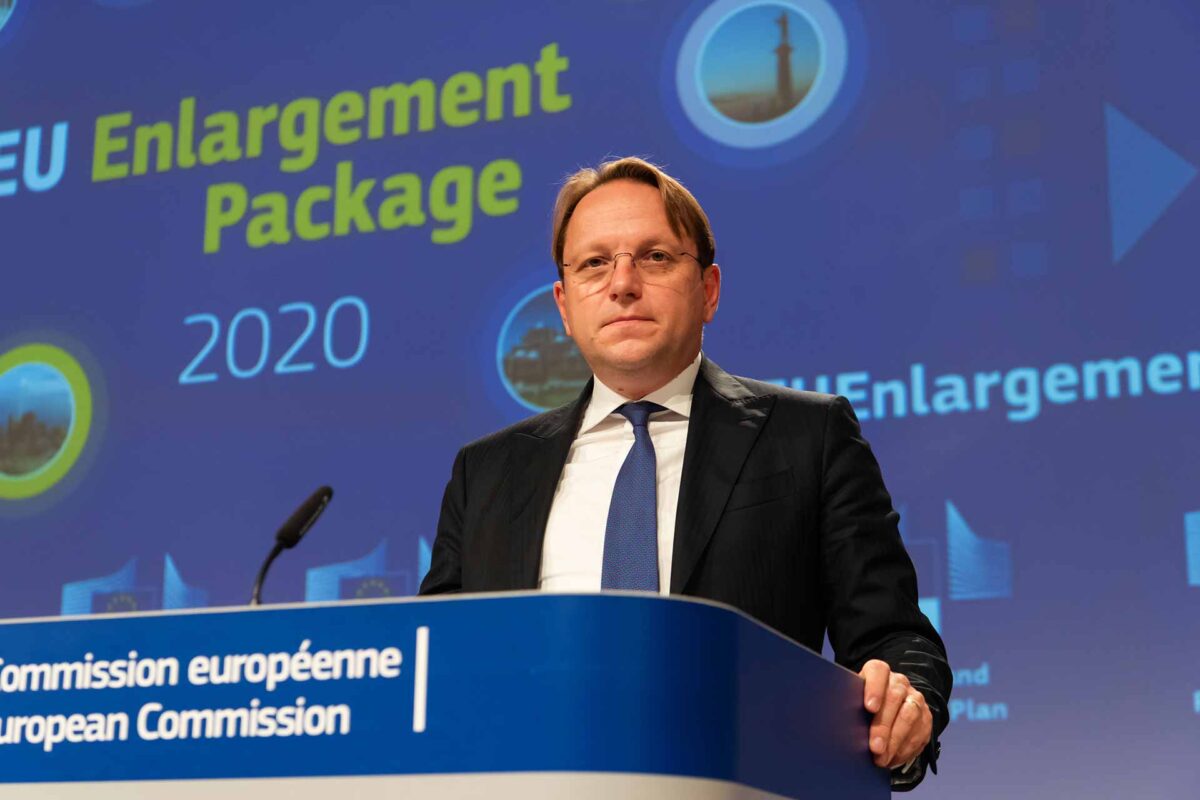
EU Grant Funding and Western Balkans Guarantees
In addition to the EU’s significant grant funding to the region, the EU can provide guarantees to help reduce the cost of financing for both public and private investments and to reduce the risk for investors. Support through the new Western Balkans Guarantee facility, under the EU External Action Guarantee and the European Fund for Sustainable Development Plus. This plan mobilises potentially investments of up to €20 billion in the next decade.
The investment package will be a key driver for facilitating increased public and private investments in the region by European and international financial institutions.
What are the 10 key flagship initiatives in the Western Balkans’ Plan?
The plan identifies ten investment flagship initiatives in key areas for economic development such as sustainable transport and energy connectivity, the green and digital transformation, strengthening the competitiveness of the private sector and support to health, education and social protection, including a youth guarantee to create job opportunities for young people.
In the context of the Green and Digital transition, the Commission will examine the costs, the benefits and the impacts of the following priority investment flagships and their corresponding project proposals with a view to take them forward actively and expediently.
The Commission also adopted today the 2020 Enlargement Package, its annual assessment of the implementation of fundamental reforms in the Western Balkan partners and Turkey. These assessments are accompanied by recommendations and guidance on these reform priorities, which remain at the heart of the EU accession process. The implementation of these reforms, in particular in the rule of law area, will be crucial for the success of this economic plan and fostering sustainable economic development in the region.
FLAGSHIP 1 – CONNECTING EAST TO WEST
- The “Peace Highway” in Kosovo (linking Pristina with Niš in Serbia) will be finished with the Serbia section substantially advanced.
- While the (core network of the) road corridor (Corridor X) south-east from Hungary through the region to Bulgaria, Greece and beyond has been practically completed, including with EU support, the parallel rail corridor will be fully modernised. In particular, the Niš railway bypass in Serbia will be finalised in this timeframe. The project on Corridor X to upgrade the rail connection between Serbia and Croatia, which is a vital link in terms of rail freight, will be considerably advanced, as will the project to upgrade the rail link to North Macedonia.
- Rail Corridor VIII between Skopje and the Bulgarian border will be substantially advanced to connect Skopje and Sofia.
- Demining of the Sava river and addressing bottlenecks on the Danube river will be completed or advanced to improve the sustainable transport mode of these important waterways as part of the TEN-T network, and to facilitate further development of intermodal exchanges.
FLAGSHIP 2 – CONNECTING NORTH TO SOUTH
- 75% of the main north-south road corridor linking central Europe capitals through Sarajevo in Bosnia and Herzegovina to the port of Ploče on the Adriatic coast (Corridor Vc) will be completed to motorway standards. The rail connection along the same corridor will also be upgraded.
- Rail Route 4 linking Belgrade to Podgorica to the Montenegrin port of Bar will be fully rehabilitated from the Serbia border to the sea. The parallel road corridor will be further advanced, in particular the Podgorica bypass.
- The Sarajevo to Podgorica capital to capital connection will be enhanced, linking further to the existing and planned networks in Bosnia and Herzegovina, and providing more direct links between neighbours.
- Railway Route connecting Belgrade with Pristina will be further upgraded through construction works in Kosovo and by preparing the necessary technical documentation for the rehabilitation works in Serbia.
EU High Representative for Foreign Affairs and Security Policy/Vice-President of the European Commission, Josep Borrell, said: “The citizens of the Western Balkans are part of Europe and we have a shared interest in helping these six partners move forward on their EU path. With the Economic and Investment Plan, we are backing our Enlargement Package assessment with action, providing deep and strong support for economic recovery and reform – for a modern, greener and more prosperous Western Balkans delivering better to their citizens on the road to the EU.”
FLAGSHIP 3: CONNECTING THE COASTAL REGIONS in Western Balkans
- The Rail Route 2 linking the capitals of Tirana and Podgorica, and extended to the port of Durres, is a key project for the region and will be enhanced through the rehabilitation of 120 km of railway line in Albania towards the border with Montenegro.
- Major steps will be taken to complete the “Blue Highway” along the coast from Croatia down to Greece: the Tirana road bypass will be completed and two further sections in Albania plus the Budva bypass in Montenegro will be substantially advanced.
FLAGSHIP 4 – RENEWABLE ENERGY
- The Fierza Hydro Power Plant rehabilitation in Albania will be completed, and the construction of the Skavica Hydro Power Plant advanced, in order to increase the potential for the country and ultimately the region with view to increase export of electricity from clean energy.
- The Piva Hydro Power System in Montenegro will be expanded with the start of the construction of the Komarnica Hydro Power Plant.
- Preparations for the construction of the Ibër-Lepenc Hydro System Phase II in Kosovo will be accelerated.
- Wind park and solar power plant investments in North Macedonia will be substantially advanced and serve as an example for future proof investments making use of the renewable energy potential of the region.
FLAGSHIP 5 – TRANSITION FROM COAL
- As part of the Trans Adriatic Pipeline, the construction of the Fier-Vlora gas pipeline in Albania will be completed, and the Ionian-Adriatic pipeline along the coast will be prioritised, facilitating a major diversification of the sources of gas supply to the Western Balkans region and beyond
- The Gas-interconnector Bosnia and Herzegovina – Croatia, complementing the above diversification, and increasing the potential and diversification of the existing gas distribution system in the country, will be completed
- The North Macedonia – Kosovo Gas Interconnection, and extending the already ongoing investment of the North Macedonia – Greece interconnector, would start construction.
- The North Macedonia – Serbia Gas Interconnection will be prepared for construction.
- The Trans-Balkan Electricity Transmission Corridor in Serbia as part of interconnection between Serbia, Montenegro, and Bosnia and Herzegovina will be completed to provide the backbone for the electricity distribution of the whole region and towards the EU.
FLAGSHIP 6 – RENOVATION WAVE
The Commission proposes to expand the “EU renovation wave” to the Western Balkans.
The building sector accounts for over 40% of total energy consumption in the Western Balkans. Renovating public and private buildings to meet minimal energy performance standards can make a very significant contribution to the reduction of greenhouse gas emissions, improve the living standards of citizens, as well as their health. A building renovation wave implemented with the help of the Energy Community will assist the Western Balkans in decarbonisation of public and private building stock, with a strong emphasis on digitalisation and taking into account energy poverty. The EU together with international financing institutions, will support the efforts of the Western Balkans partners to triple the current renovation rate and energy savings in existing buildings and achieving nearly-zero energy and emission standard in new buildings.
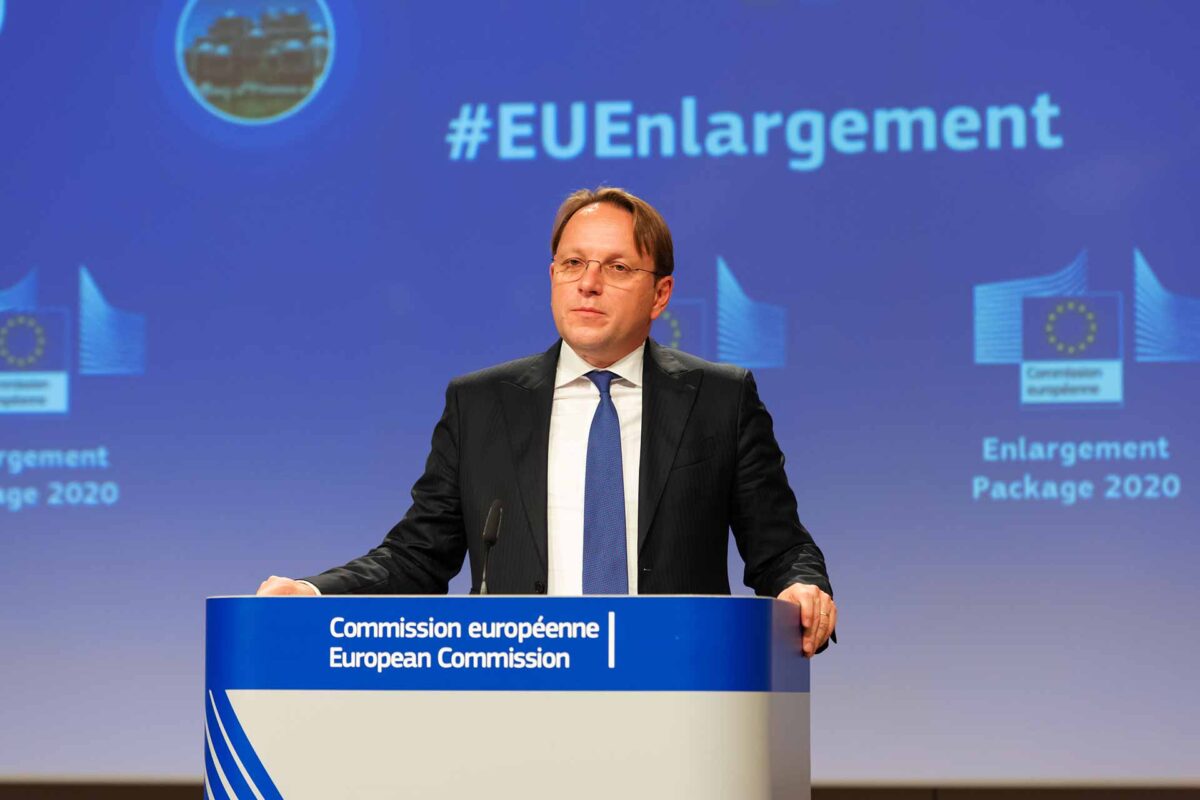
FLAGSHIP 7 – WASTE and WASTE WATER MANAGEMENT
- Construction of wastewater treatment plants in Skopje and Pristina will be completed. These projects have a high transboundary impact and improving the living conditions of the population.
- The implementation of an environmental investment programme in Serbia, comprising modernised waste water treatment projects for large and medium sized towns, will be undertaken
- Integrated regional waste management systems in Albania, Montenegro, North Macedonia and Serbia, going hand-in-hand with the closure of non-compliant landfills, will be established. Similar investments elsewhere in the region should also be supported in the future, including better management of waste in cross-border areas.
- Support for the establishment of proper air and water monitoring systems and pollution prevention measures.
Presenting the new Plan, EU Commissioner for Neighbourhood and Enlargement, Olivér Várhelyi, commented: “Today we are presenting our Economic and Investment plan for the Western Balkans to boost the economic development and recovery of the region. We will mobilise up to €9 billion of funding for investment flagships in the areas of transport, energy, green and digital transition, to create sustainable growth and jobs. The Plan also offers a path for a successful regional economic integration to help accelerate convergence with the EU and close the development gap between our regions, ultimately speeding up the process of EU integration. This plan should help to transform the Western Balkans into one of the most attractive region for investments in the world. Implementation of course will need to go hand in hand with reforms.”
FLAGSHIP 8 – DIGITAL INFRASTRUCTURE
- The development and roll-out of national broadband infrastructure in the six Western Balkans partners will continue and the preparation of further investments elsewhere will be accelerated with particular focus on connecting rural areas.
- Setting up secure, energy-efficient and trustworthy data centres, edge and cloud infrastructures while ensuring alignment with EU’s rules and fundamental values, including data protection, as well as linking to EU initiatives on high performance computers, digital incubators and innovation hubs.
- Building on ongoing initiatives such as the Balkan Digital Highway, synergies with other connectivity areas such as transport and energy should be fully explored in the context of infrastructure-sharing. In addition, using technology and data purposefully to make better decisions has a high potential to deliver a better quality of life for the citizens in the region. Support will also be provided for adapting to the rapid transformative technological development in order to remain prosperous and competitive. The EU will promote cooperation in digital education globally through the renewed Digital Education Action Plan (DEAP) and promote equality in access, in particular for disadvantaged groups, including Roma.
FLAGSHIP 9 – INVESTING IN THE COMPETITIVENESS OF THE PRIVATE SECTOR
- Plan to increase the grant amount to support the private sector under the Western Balkan Investment Framework. 50% of EU private sector funding should is only for innovation and green growth.
- Plan to increase the guarantee capacity supporting investments to, primarily to strengthen the competitiveness of SMEs and enhance employment creation, particularly catering to young people, through the Western Balkans Guarantee Facility
- Mobilise assistance for sustainable transformation of agri-food systems and rural development in the region.
FLAGSHIP 10 – YOUTH GUARANTEE
The Youth Guarantee is an activation scheme to ensure that all young people receive a good quality offer of employment, continued education, apprenticeship or traineeship within a period of four months of becoming unemployed or leaving formal education.
Western Balkan governments implement the Youth Guarantee flagship in line with the EU Youth Guarantee. It will implement it in four phases, which could all potentially benefit from EU support.
What is the link between this Plan and the Enlargement reports?
The Enlargement package provides a very comprehensive assessment of the progress of the region towards the European Union and gives clear recommendations to the authorities on where there are still gaps to meet the EU’s accession criteria. The reports will be a very useful tool for the governments to focus their reform efforts in the year ahead. At the same time, the Economic Investment Plan will provide the region the EU’s financial support to foster the much-needed economic growth to ensure convergence with the EU’s economic criteria and improved living conditions for the citizens of the region.
The plan provides a unique combination of three strands: first the substantive funding that the European Union will provide to swiftly deliver on key priority investments that have been proposed by the authorities and have high impact for the whole region; second: the firm commitment of the partners to accelerate the reforms needed to consolidate conducive conditions for economic growth and third: the engagement of the whole region to establish an economic market that will make the region more attractive for investors from the region, the EU and abroad.
S&Ds welcome Investment Plan for Western Balkans, but warn no shortcut on democracy and the rule of law
Socialists and Democrats welcome the proposal on an Economic and Investment Plan for the Western Balkans, adopted today by the European Commission, together with the annual enlargement progress reports. Nevertheless, they insist that all countries in the region must implement fundamental reforms to safeguard the rule of law, judiciary, freedom of media and corruption. These reforms must be the main precondition for the disbursement of funds to public authorities under the Investment Plan. The S&Ds will not compromise on European values, both in the case of current member states, and countries wishing to join the EU.
“In Serbia, as the Commission’s report states, the newly constituted Serbian parliament is marked by the overwhelming majority of the ruling coalition. It was elected by the governing party’s overwhelming advantage and the promotion of government policies by most major media outlets. In our view, the Parliament in Serbia has lost its role as a legislative body that represents the whole of Serbian society.
“In Albania, the political dialogue needs to be enhanced and we encourage all relevant actors, both political and belonging to the civil society, to stay focused on implementing the necessary reforms for the country to progress on the path of EU integration.
“When it comes to Kosovo, the S&D Group calls upon a better implementation of the reforms to ensure effective implementation of the EU acquis.

